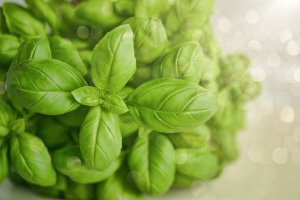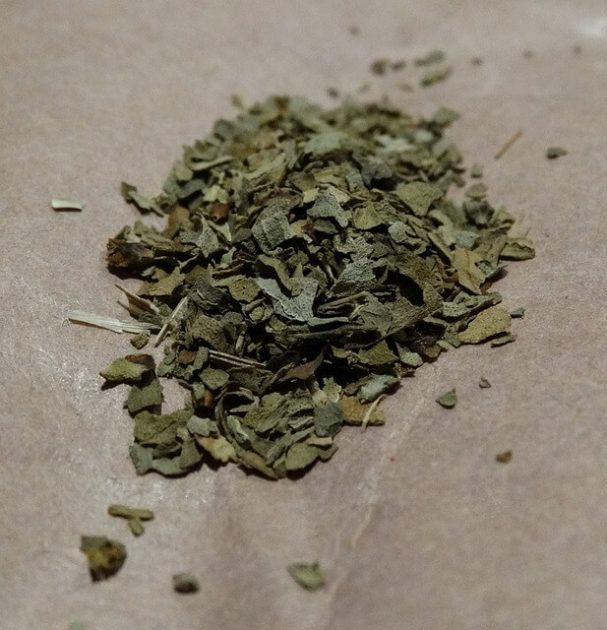What is Basil?
Basil, the fragrant herb known for its culinary uses, is also a natural remedy for a variety of common ailments. With its rich history in traditional medicine, basil has been used for centuries to combat inflammation, boost immunity, and promote overall health and wellbeing. This versatile herb is known to possess powerful antioxidant, anti-inflammatory, and antibacterial properties, making it an excellent addition to any natural health regimen. Whether you’re dealing with digestive issues, respiratory problems, or skin irritations, basil offers a range of health benefits that can help alleviate symptoms and promote healing. In this article, we’ll explore the many ways basil can be used to improve your health and wellbeing, and why it’s worth adding this herb to your daily routine. So, let’s dive in and discover the amazing health benefits of basil!
Basil is a popular herb known for its aromatic leaves and distinctive flavor. It actually is a member of the mint family (Lamiaceae) and is native to tropical regions in Asia, particularly India and Southeast Asia. It is widely used in culinary applications and is a key ingredient in various cuisines around the world, including Italian, Thai, and Mediterranean.
History & background
Basil has a rich history and background that dates back thousands of years.
It is believed to have originated in tropical regions of Asia, particularly India and Southeast Asia and has been cultivated for over 5,000 years.
Basil was highly esteemed in ancient Egyptian civilization. It was considered a sacred plant and was used in religious rituals and embalming practices. The leaves of the herb were often placed in tombs to provide protection and purification.
The Greeks and Romans associated basil with various meanings and beliefs. They viewed it as a symbol of love, fertility, and good luck. It was also associated with mourning and was used in funeral rites. Furthermore it was recognized for its medicinal properties and healing benefits.
It gained popularity in Europe during the Middle Ages. Believed to have protective qualities against evil spirits it was often planted near doorways or windows. It also had a reputation as an aphrodisiac and was used in love potions and spells.
In India, basil, known as tulsi, holds significant spiritual and medicinal value. It is considered a sacred herb in Hindu culture and is associated with the goddess Tulsi. Tulsi is revered for its healing properties and is used in Ayurvedic medicine.
Its culinary use has spread across different regions and cuisines. Italian cuisine, in particular, heavily relies on basil as a key ingredient in dishes like pesto, Caprese salad, and sauces. Or products such as Italian sausage include basil, fennel and a host of spices. Thai cuisine also prominently features basil, especially in dishes such as stir-fries, curries, and soups.
Today, it is cultivated and consumed worldwide. It is grown both in home gardens and commercial farms, and its popularity continues to grow due to its distinct flavor and aromatic properties. It remains a staple herb in many culinary traditions and is appreciated for its culinary, medicinal, and cultural significance.
What form does it come in?
Basil is available in various forms, allowing for different culinary and medicinal uses.
- Fresh
- Dried
- Oil
- Frozen
- Paste
Fresh basil leaves are the most widely used form. The leaves are plucked from the plant and used in their natural state. These have a vibrant green color and a strong aroma. It is commonly used in salads, sauces, pesto, soups, and as a garnish.
The leaves can be dried and packaged, resulting in dried basil. Dried basil has a more concentrated flavor. It is often used as a convenient substitute when fresh basil is not available. Dried basil is commonly used in spice blends, dry rubs, and long-cooking dishes like stews and sauces.
Basil essential oil is extracted from the leaves through steam distillation. It is highly concentrated and should be used sparingly. Basil essential oil is primarily used in aromatherapy, perfumes, and cosmetic products. It is therefore not typically used for culinary purposes.
Did you know that basil can be preserved by freezing it? The leaves are typically blanched, frozen, and then stored. This allows it to be be used in recipes that require cooking or blending, such as soups, sauces, and pesto. While the texture of frozen basil may change, it retains its flavor reasonably well. I recommend putting a small amount of olive oil into an ice-cube tray, then immersing a leaf in each section before freezing. Just pop it into your recipe whenever you need it.
Basil paste or puree is a convenient form of basil that is often sold in tubes or jars. It is made by blending fresh leaves with oil, salt, and sometimes other ingredients. Basil paste can be used as a flavoring agent in various dishes and is particularly handy when fresh basil is not readily available.
We have included a link for Dried Organic Basil Leaves, so that you will always have some ready to use in your cooking.
Dried Organic Basil Leaves – use in soups, stews, dressings and marinades.
Perfect for Asian, Indian and Middle Eastern dishes.
This product is sustainably farmed. No pesticides or herbicides used.
USAD Certified organic, Non-GMO, kosher.
6 ounces of flavor in a resealable container.
Is Basil good for you?
Yes, basil is not only a flavorful herb but also offers several health benefits.
Basil is a good source of essential nutrients. It contains vitamins A, K, and C, as well as minerals such as calcium, iron, and magnesium. These nutrients contribute to overall health and support various bodily functions.
It contains powerful antioxidants, such as flavonoids and phenolic compounds, which help protect against cellular damage caused by free radicals. Antioxidants have been associated with a reduced risk of chronic diseases, including heart disease and certain types of cancer.
Certain compounds found in basil, such as eugenol, linalool, and rosmarinic acid, have anti-inflammatory properties. They may help reduce inflammation in the body, which can be beneficial for conditions like arthritis and inflammatory bowel diseases.
It has been traditionally used to aid digestion. It can help stimulate the production of digestive enzymes, promote healthy gut bacteria, and alleviate symptoms of indigestion, bloating, and gas.
The essential oils present in basil, including eugenol and cineole, have antimicrobial properties that can help fight against harmful bacteria, viruses, and fungi. Consuming basil may support a healthy immune system and help protect against infections.
The aroma of the crushed leaves is known to have calming effects and may help reduce stress and anxiety. It is often used in aromatherapy for its relaxing properties.
It’s important to note that while basil can provide health benefits, it is not a cure-all. It should be consumed as part of a balanced diet and a healthy lifestyle. As with any specific health concerns or conditions, it’s always a good idea to consult with a healthcare professional or registered dietitian for personalized advice.
Basil Flavor profile
The flavor profile of basil can be described as herbaceous, slightly sweet, and with hints of peppery, minty, and anise-like notes.
It also has a prominent herbaceous flavor, which means it imparts a distinct herbal taste to dishes. This flavor is often described as fresh and green.
Basil carries a subtle natural sweetness that balances its herbal notes. It adds a pleasant and delicate sweetness to dishes without being overpowering.
It has a distinct mild peppery undertone, especially in the stems and flowers. This adds a touch of spiciness to its flavor profile.
Some varieties, such as sweet basil, exhibit a mild minty flavor. It provides a refreshing and cooling sensation.
Certain types, such as Thai basil, have a distinct anise or licorice-like flavor. This gives a unique twist to the taste profile of dishes when using these varieties.
Cooking with Thyme
Cooking with basil can add a delightful and aromatic touch to a wide range of dishes.
- Fresh Basil in Salads: Add torn or chopped fresh leaves to salads for a burst of freshness. It also pairs well with tomatoes, mozzarella cheese, cucumbers, and balsamic vinaigrette.
- Pesto Sauce: Make a classic pesto by blending fresh leaves, garlic, pine nuts, Parmesan cheese, and olive oil. Pesto is a versatile sauce that can also be used with pasta, spread on sandwiches, or used as a marinade or topping for grilled meats and vegetables.
- Tomato-based Dishes: It is a perfect complement to tomato-based dishes. Add fresh leaves to tomato sauces, soups, and stews for added flavor. It also enhances the taste of classic Italian dishes like Caprese salad, Margherita pizza, and bruschetta.
- Herb-infused Oil: Create a fragrant oil by gently heating the leaves with olive oil. Strain the oil and use it as a drizzle over grilled vegetables, roasted meats, or as a base for salad dressings and marinades.
- Thai Cuisine: Thai basil is an essential ingredient in Thai cuisine. You can use it in stir-fries, curries, and noodle dishes for its unique flavor. Also Thai basil has a slightly spicy and licorice-like taste that adds depth to these dishes.
- Drinks and Cocktails: Basil can be used in refreshing drinks and cocktails. Just muddle the leaves with fruit or mix them into lemonade, iced tea, or infused water for a hint of herbal freshness. It also pairs well with gin or vodka-based cocktails.
Remember, it is best added towards the end of the cooking process to retain its vibrant flavor and aroma. Whether you use it fresh, dried, or in other forms, it can elevate the taste of various dishes and add a touch of freshness to your culinary creations.
Common uses
Apart from its culinary uses, basil has various other applications and benefits.
- Medicinal: Basil has been used in traditional medicine for centuries. It is believed to have antibacterial, antiviral, and anti-inflammatory properties. The leaves or extracts are used in herbal remedies and therapies coughs, colds, digestive issues, and stress-related conditions.
- Aromatherapy: The aroma of basil is known for its calming effects. Basil essential oil is used in aromatherapy to promote relaxation, relieve stress, and improve mental clarity. It can also be diffused, added to massage oils, or used in bath products for its aromatic benefits.
- Insect Repellent: Basil has natural insect-repellent properties. Growing the plants in your garden or placing pots near windows and doors helps deter flies and mosquitoes. Furthermore you can make a homemade insect repellent spray by steeping the leaves in water and using the infused liquid as a natural repellent.
- Skin and Hair Care: It has cleansing and purifying properties that can benefit the skin and hair. Basil extracts are used in cosmetic products like cleansers, toners, and hair treatments for their soothing and rejuvenating effects. It can also help promote healthy skin, reduce blemishes, and add shine to hair.
- Culinary Infusions: It can also be used to infuse flavor into oils, vinegars, and syrups. Infused basil oils or vinegars can be drizzled over salads, roasted vegetables, or used in marinades. Also basil syrup can be added to cocktails, mocktails, or desserts for a unique herbal twist.
- Household Cleaning: The leaves can be used to make natural cleaning solutions. Steep the leaves in vinegar or water to create an all-purpose cleaner with antibacterial properties. Use the liquid to clean kitchen surfaces, countertops, and bathroom fixtures.
- Air Freshener: The leaves can be crushed or bruised to release their aromatic oils, providing a fresh and pleasant scent.
Other alternatives
Finally, if you are looking for an alternative to basil then you could consider using oregano, parsley, cilantro, mint, tarragon, thyme or Herbes de Provence. Each can bring a slightly different flavor to your dish.
Have a look at our substitutes section for ideas on what other herb you can use in place of basil.

